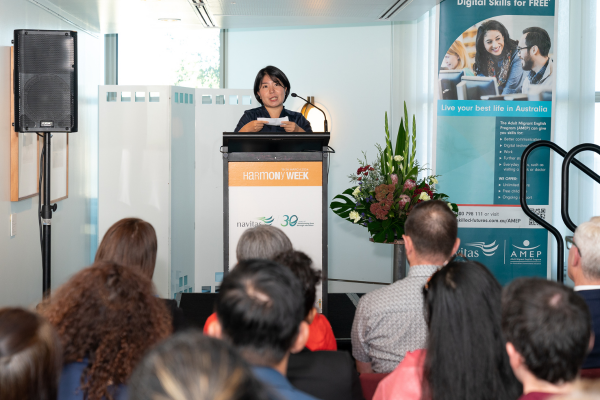Celebrating Harmony Week at Parliament House

Navitas Skilled Futures (NSF) has showcased its innovative program delivery and positive student outcomes at a Harmony Week event at Australian Parliament House.
The NSF-hosted event on Thursday 21 March was attended by staff, students, representatives from government, migrant and refugee support organisations, and the Minister for Immigration, Citizenship and Multicultural Affairs, Andrew Giles.
Harmony Week, held this year from March 18 to 24, is an annual celebration of Australia’s cultural diversity and the benefits it brings to the Australian community. This year’s theme is ‘Everyone Belongs’.

Speaking at the NSF event, Minister Giles said Harmony Week enabled everyone to feel proud of where they came from – their faith, culture and traditions – but also to feel that they “belong everywhere”.
“Fundamental to that is English language acquisition,” Minister Giles said, referencing the Australian Government-funded Adult Migrant English Program (AMEP), which has been successfully delivered by Navitas for the past 25 years, and has just celebrated its 75th anniversary in Australia.
“I recognise the people in this room who either deliver programs, cause programs to be delivered, but most particularly the people who have been involved in this program as students. You are what this is all about. Giving you the tools that you need to navigate your life on your terms in Australia is absolutely fundamental to making this an even better country.
“For Navitas … I do value the partnership you have with the Australian Government and the work that you do in many different dimensions, but particularly when we reflect upon the critical way in which effective English language tuition enables people to make everything of their life here, I’m tremendously grateful.”

NSF General Manager, Jetinder Macfarlane, said the theme of Harmony Week resonated deeply with staff and students at NSF colleges in Canberra and south-west Sydney, “where inclusiveness, respect and community are values that are evidenced every day”.
“The success of the AMEP is often considered after a student’s graduation, when they reach their goal of further study or employment or find their own unique path. But at Navitas, the success of the program can be seen almost from the moment a person walks into our doors,” Jetinder said.
“When people arrive in Australia, they have a lot of new and different things to deal with – new language, laws, environment – and depending on the circumstances of their arrival, they may also be dealing with trauma and shock. They lose their independence and confidence and feel their difference, like they don’t belong,” she said. “But by undertaking the AMEP, they feel that sense of belonging, of community. They meet others on the same journey and they don’t just learn words and sentences, they work together to learn how to live in society, to carry out important day-to-day tasks, to deal with the important aspects of settlement and, over time, to gain that confidence and independence to know anything is possible for them in their future in Australia.”
Three past and present NSF students spoke at the Parliament House event – Homaira, Imran and Lara.

Homaira, a single mother of six children who arrived in Australia three years ago (pictured above with two of her children), reflected on the challenges of supporting her children with their settlement while making her own adjustments to a new country and new life, including learning a new language.
“When I arrived here, I could speak five languages, but it wasn’t enough because I couldn’t speak English. I faced challenges such as securing employment and continuing my education,” she said. “With the AMEP I didn’t just learn language skills, but also found a helpful group of people who wanted to assist me with settling in Australia. Programs like Pathways to Work (part of the AMEP) provide me with gaining experience and knowledge on securing employment. Plus, I got to meet other women and refugees who had gone through similar experiences as me, which helped me in blending with society and make friends.“
Homaira said once her English improved she planned to undertake further study and learn film production “to make movies to show the stories of women in my country“.
“In Afghanistan, it’s hard for women to pursue their dreams because there aren’t many chances and freedoms,” she said. “But here in Australia, women like me can do anything. I’m so thankful for that.”

Imran (pictured above with Michael Cox), who came to Australia from Bangladesh with an established career in IT and telecommunications, said he experienced months of job rejections until the AMEP put him on the path to success.
In the AMEP Pathways to Work course at Navitas he learned “not only many important skills for the Australian workplace, but also how I could improve my interview performance”. He was encouraged to apply for jobs outside his industry and experience, to get his foot in the door; and his first job in Australia was in retail, but it led to bigger and better things.
While working he studied part time for Australian IT networking qualifications and tutored other Navitas students through the Volunteer Tutor Scheme. He gained skills and confidence and soon got part-time work in his field, and he and his wife welcomed the birth of their first child.
“Navitas helped me enter the workforce in Australia, and they helped ignite my passion for teaching, by offering me the Volunteer Tutor role, and the end result is, I am now working as a full-time permanent teacher at Canberra Institute of Technology managing the ICT and Cyber Security Department,” he said. “I have come a long way and feel very much at home, doing what I love and helping others. I would not have been able to do this on my own, that is why programs like the AMEP are so important.”

Lara (pictured above), from China, is working as a Learning Support Assistant at a local primary school, after gaining work experience there through the AMEP’s Pathways to Work program.
A former teacher in her homeland, she is now studying at Navitas for her IELTS so she can pursue an Australian qualification. In the meantime she is so grateful for the experience that has allowed her to feel valued, and at home.
“I appreciate what I have gained from the AMEP, and I am now also giving back as a volunteer tutor, helping an elderly lady learn daily life English so that she is more capable of accessing community service. It’s exciting that I can apply my teaching skills in tutoring, and she is becoming more confident every week!” she said.
“I am so grateful to the AMEP. When I signed up at Navitas I thought, ‘Just give it a go, “If it’s not getting me a job, at least it will get me some real people to talk to, some new friends, maybe. But it has changed my life, and I am not the only lucky one in my class. I hope all of us can find the place we belong.”

NSF’s Harmony Week event included a presentation on the history of the AMEP by NSF Executive General Manager Michael Cox. There were also displays and presentations on innovative AMEP projects, such as the English for Swimming program, Digital Skills for Women course, 360-degree Virtual Reality (VR) community and workplace experience, and training on using Artificial Intelligence (AI), including its risks and complexities. There were also feature exhibits of the VR experience and student art from a roving exhibition.
“The AMEP is about so much more than learning English,” Jetinder Macfarlane said. “We are proud to provide genuine support and opportunities that help to change lives, and this event is the perfect opportunity to show how we are now doing that in many more ways.”
NSF Colleges across south-west Sydney and Canberra also took part in community events and held their own Harmony Week celebrations this week, with special activities such as creating stories and artworks to reflect their settlement journeys, and sharing food, customs and traditions from their homelands with each other.




